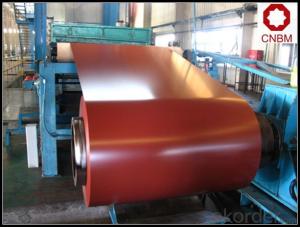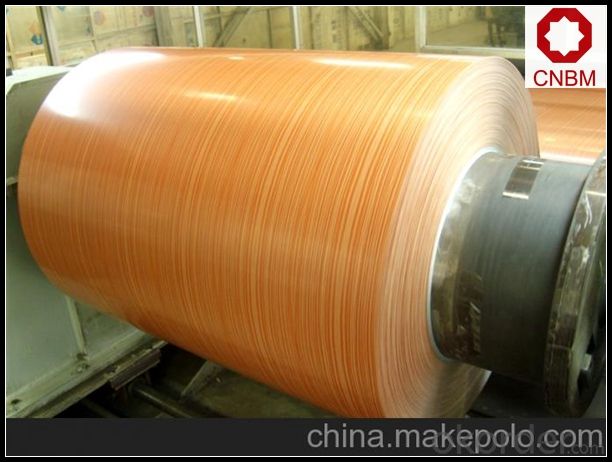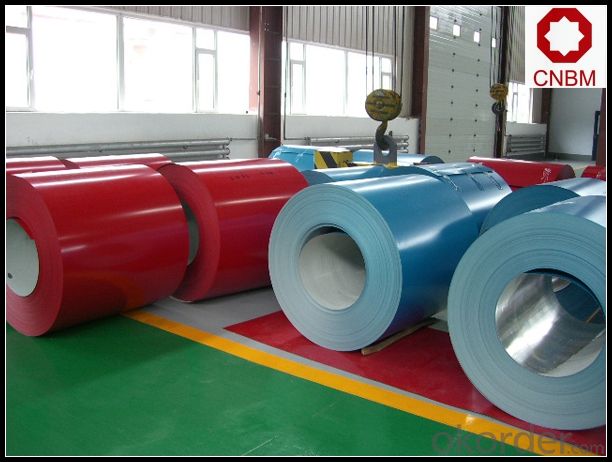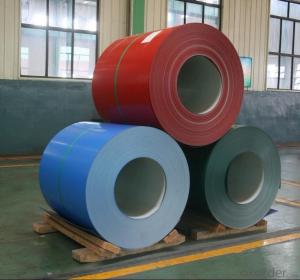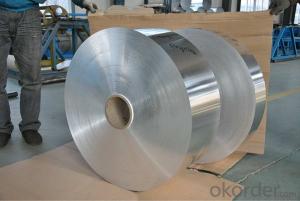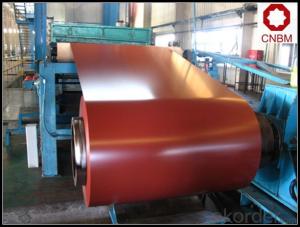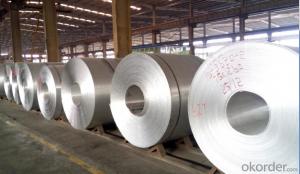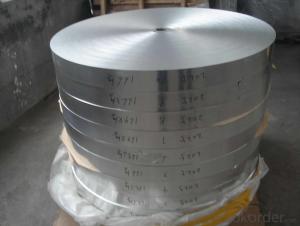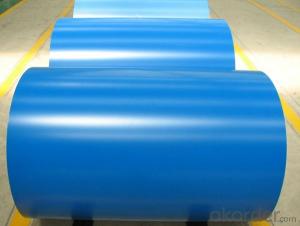5052-H32 Aluminum Coil in Roll for Building and Vehicle Construction
- Loading Port:
- Shanghai
- Payment Terms:
- TT OR LC
- Min Order Qty:
- 5 m.t.
- Supply Capability:
- 10000 m.t./month
OKorder Service Pledge
OKorder Financial Service
You Might Also Like
Specification
1. Specification of Aluminium Coil in Roll for Building and Vehicle Construction
Thickness | 0.1mm-10mm |
Popular Thickness | 0.1mm/0.2mm/0.25mm/0.3mm/0.6mm/0.8mm/1.0mm/1.2mm/1.5mm/2.0mm/3.0mm... |
Width | 20mm-2500mm |
inner diameter | 505mm 508mm 605mm |
Material | 1050,1060,1070,1100,1200,3003,3004,3005,5052,5005,5754,5083 |
Temper | O,H12,H14,H16,H18,H22,H24,H26,H32,H34,H36,H38,H111,H112 |
Surface | mill finish |
Packing | Export standard wooden pallets |
Payment Terms | 100% irrevocable L/C at sight or 30% T/T in advance as deposit,70% balance against the B/L copy |
Minimum Order Quantity | 5000kg |
Delivery time | 15-25 days after receiving L/C or deposit |
Remark | Specific requirement of alloy grade, temper or specification can be discussed at your request |
2. Application of Aluminium Coil in Roll for Building and Vehicle Construction
(1).Interior: wall cladding, ceilings, bathrooms, kitchens and balconies, shutters, doors...
(2).Exterior: wall cladding, facades, roofing, canopies, tunnels,column covers , renovations...
(3).Advertisement: display platforms, signboards, fascia, shop fronts...
3. Feature of Aluminium Coil in Roll for Building and Vehicle Construction
*Such coil is specially designed to replace aluminum ingot, due to the high export tax of aluminum ingot, the coil has better price than ingot.
*This type of coil can fit customer's remelting furnace just like ingot, no need to make any change to the production line that was previously used for ingot. The standard coil size and weight is very suitable for the feed gate of furnace.
*This type of coil causes less material wastage than ingot when remelted.
*Our coil is made directly from ore, no need to go though the ingot making process, quality is much better than other suppliers who use ingot scrap to make coil.
Be free from Oil Stain, Dent, Inclusion, Scratches, Stain, Oxide Dicoloration, Breaks, Corrosion, Roll Marks, Dirt Streaks and other defect which will interfere with use
4. Certificate:
SGS and ROHS(if client request, paid by client), MTC(plant provided), Certificate of Origin(FORM A, FORM E, CO), Bureau Veritas and SGS (if client request, paid by client), CIQS certificate
5. Image of Aluminium Coil in Roll for Building and Vehicle Construction
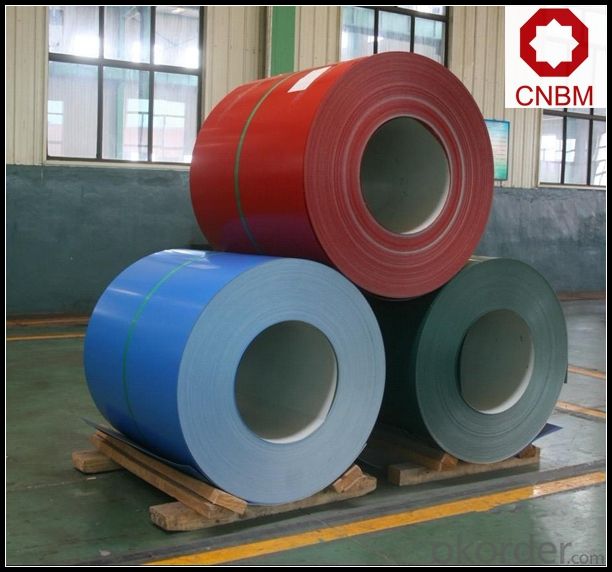
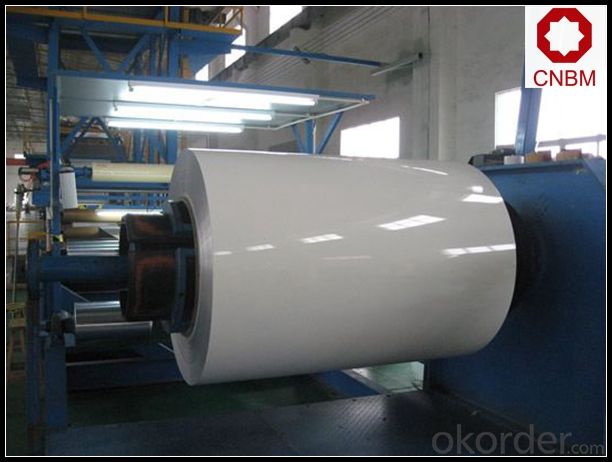
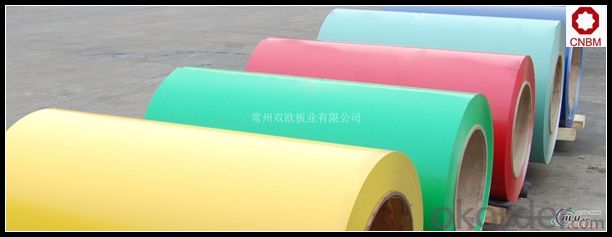
6. Package and shipping of Aluminium Coil in Roll for Building and Vehicle Construction
eye to wall
eye to the wall
with wood pallet (wooded case also available)
7. FAQ
1) What is the delivery time?
Dpends on actual order, around 20 to 35 days
2)What is the QC system:
We have QC staff of 20 persons and advanced equipment, each production is with MTC traced from Aluminum ingot lot.
3) What market do you mainly sell to?
Australia, America, Asia, Middle East, Western Europe, Africa etc
- Q: What are the different alloy grades used in aluminum coils?
- There are several different alloy grades used in aluminum coils, each with their own unique properties and applications. Some of the most commonly used alloy grades include: 1. 1100: This is a commercially pure aluminum grade, known for its excellent corrosion resistance and high thermal conductivity. It is often used in applications that require good formability, such as fin stock, heat exchangers, and chemical equipment. 2. 3003: This alloy grade is known for its moderate strength and good workability. It is commonly used in applications that require both corrosion resistance and formability, such as packaging, cooking utensils, and general sheet metal work. 3. 5052: This alloy grade offers a good combination of strength, formability, and corrosion resistance. It is often used in marine environments, as well as in transportation equipment, such as fuel tanks and vehicle bodies. 4. 6061: This is a heat-treatable alloy grade, known for its excellent strength and weldability. It is commonly used in structural applications, such as bridges, aircraft parts, and bicycle frames. 5. 7075: This is another heat-treatable alloy grade, known for its high strength-to-weight ratio. It is often used in aerospace applications, as well as in the manufacturing of high-stress components, such as firearm parts and rock climbing equipment. These are just a few examples of the different alloy grades used in aluminum coils. The selection of the appropriate grade depends on the specific requirements of the application, such as desired strength, corrosion resistance, formability, and thermal conductivity.
- Q: What role does the powdered aluminum play in this reaction?
- Aluminum powder is a powerful and energetic reducing agent. The Iron(iii) ions have a greater electron affinity than metallic aluminum does, so it will easily borrow electrons from the aluminum to become metallic iron. The total reaction is Fe2O3 + 2Al === Al2O3 + 2Fe. It's important to note that the oxygen in the iron(iii) oxide doesn't really participate in this single replacement reaction, as it is not chemically changed. Fe2O3 is an ionic compound which consists of Fe[3+] ions and O[2-] ions. So more correctly Fe[3+) + Al + 3O[2-] === Al[3+] + Fe + 3O[2-] The ionization energy for aluminum is also greater than for iron, so this reaction generates a lot of heat, enough heat to produce 2,500-3,500 degree C molten iron. In fact, aluminum can reduce many different metal oxides in the same manner. So the thermite reaction can be used to produce a number of metals like copper, calcium, manganese, chromium, or even titanium.
- Q: How are aluminum coils used in the production of medical equipment?
- Aluminum coils are commonly used in the production of medical equipment due to their excellent conductivity, lightweight nature, and corrosion resistance. These coils are primarily utilized in various medical devices such as MRI machines, X-ray equipment, and ultrasound scanners. Aluminum coils are used in these applications for their ability to efficiently dissipate heat, transmit electrical signals, and provide structural support. Additionally, the flexibility of aluminum coils allows for easy customization and shaping to meet the specific design requirements of medical equipment.
- Q: Can aluminum coils be used for roofing applications?
- Yes, aluminum coils can be used for roofing applications. Aluminum is a popular choice for roofing materials due to its numerous advantages. It is lightweight, which makes it easier to transport and install. Aluminum is also highly durable and resistant to corrosion, which ensures a longer lifespan for the roof. Additionally, aluminum is a great choice for areas with high humidity or coastal regions, as it does not rust. Moreover, aluminum roofing is energy efficient, as it reflects sunlight and heat, reducing cooling costs. Overall, aluminum coils are an excellent option for roofing applications due to their strength, durability, and energy efficiency.
- Q: How much is one square aluminum gate and five hard door?
- On the Alibaba website search "roll gate", there are many manufacturers, you can ask them.
- Q: How are aluminum coils tested for quality assurance?
- Various methods and parameters are employed to test aluminum coils for quality assurance, ensuring their compliance with industry standards and customer requirements. One of the most common tests conducted on aluminum coils is dimensional inspection, which involves measuring and comparing the dimensions and tolerances of the coils with the specifications to ensure they are manufactured within the required size and shape. Mechanical properties of the aluminum coils are also evaluated as an important aspect of quality assurance testing. This includes tests like tensile strength, yield strength, elongation, and hardness, which determine the strength and durability of the coils, ensuring they can withstand intended applications and environments. Surface quality assessment of the aluminum coils involves visual inspection to identify any visual defects such as scratches, dents, or surface irregularities. Additionally, non-destructive testing methods like ultrasonic or eddy current testing are utilized to detect any hidden defects or flaws within the coils. Chemical analysis is conducted to determine the composition and purity of the aluminum coils, which is crucial to ensuring they meet required chemical composition standards as impurities can affect their performance and integrity. Corrosion resistance testing is also performed to evaluate the ability of the aluminum coils to withstand corrosion in different environments, especially when exposed to harsh conditions or corrosive substances. In summary, quality assurance testing for aluminum coils encompasses physical, mechanical, visual, and chemical evaluations. These tests are carried out at various stages of the manufacturing process to ensure the coils meet the highest quality standards and deliver reliable performance in their intended applications.
- Q: What are the common surface finishes for aluminum coils in the electrical industry?
- The common surface finishes for aluminum coils in the electrical industry include mill finish, anodized finish, and painted finish.
- Q: Are aluminum coils resistant to chemicals?
- Yes, aluminum coils are generally resistant to chemicals. Aluminum has a natural oxide layer that forms on its surface, which provides a protective barrier against many chemicals. This oxide layer helps to prevent corrosion and degradation of the aluminum coils when exposed to different substances. However, it is important to note that some chemicals can still have an adverse effect on aluminum, particularly strong acids or alkalis. In such cases, additional protective coatings or treatments may be necessary to enhance the chemical resistance of the aluminum coils.
- Q: Are aluminum coils suitable for food processing and packaging?
- Yes, aluminum coils are suitable for food processing and packaging. Aluminum is a safe and hygienic material that is resistant to corrosion, odors, and moisture. It is commonly used for packaging food products due to its ability to maintain the freshness and quality of the food, preventing contamination and providing a longer shelf life. Additionally, aluminum coils are lightweight, flexible, and can be easily formed into various shapes and sizes, making them ideal for food packaging applications.
- Q: This question asks about the impact of aluminum coils on safety and health protection during welding processes.
- <p>Aluminum coils can significantly affect welding safety and health protection due to their unique properties. Aluminum is lighter than steel and conducts heat quickly, which can lead to faster heat transfer to the welder, increasing the risk of burns. Additionally, aluminum welding produces fumes that contain aluminum oxide, which can be harmful if inhaled over time, potentially causing respiratory issues or even neurological damage. Welders must use proper ventilation and respiratory protection to mitigate these risks. Moreover, aluminum's high reflectivity can cause intense light exposure, necessitating the use of appropriate eye protection to prevent eye injuries. Overall, aluminum welding requires specific safety measures to protect welders' health and safety.</p>
Send your message to us
5052-H32 Aluminum Coil in Roll for Building and Vehicle Construction
- Loading Port:
- Shanghai
- Payment Terms:
- TT OR LC
- Min Order Qty:
- 5 m.t.
- Supply Capability:
- 10000 m.t./month
OKorder Service Pledge
OKorder Financial Service
Similar products
Hot products
Hot Searches
Related keywords
